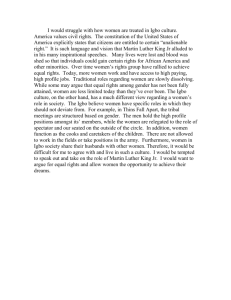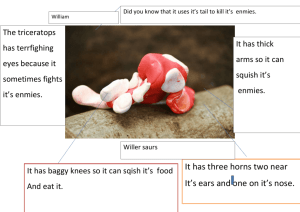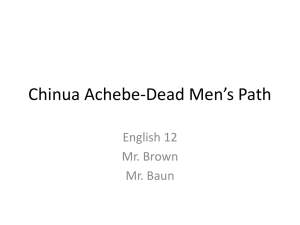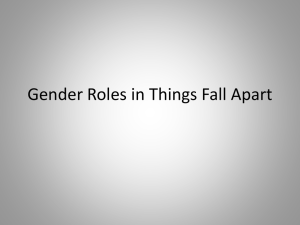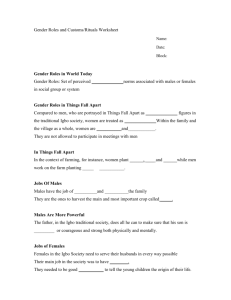"Ikenga, a figure or mask in the Ibo culture and mythology of eastern
advertisement
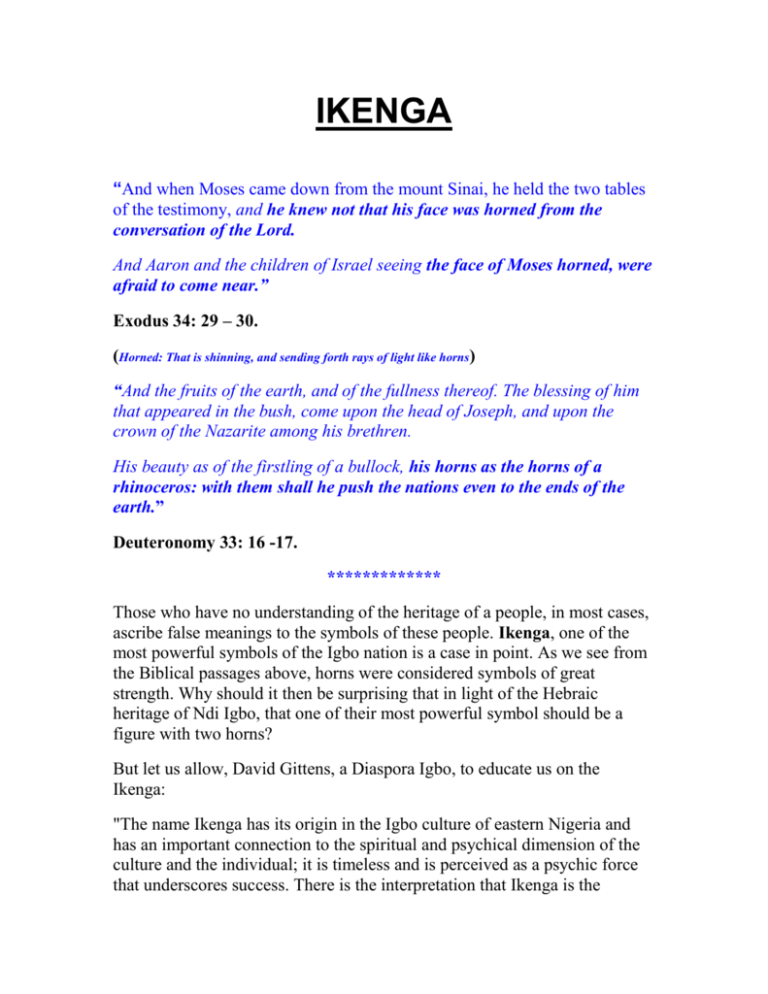
IKENGA “And when Moses came down from the mount Sinai, he held the two tables of the testimony, and he knew not that his face was horned from the conversation of the Lord. And Aaron and the children of Israel seeing the face of Moses horned, were afraid to come near.” Exodus 34: 29 – 30. (Horned: That is shinning, and sending forth rays of light like horns) “And the fruits of the earth, and of the fullness thereof. The blessing of him that appeared in the bush, come upon the head of Joseph, and upon the crown of the Nazarite among his brethren. His beauty as of the firstling of a bullock, his horns as the horns of a rhinoceros: with them shall he push the nations even to the ends of the earth.” Deuteronomy 33: 16 -17. ************* Those who have no understanding of the heritage of a people, in most cases, ascribe false meanings to the symbols of these people. Ikenga, one of the most powerful symbols of the Igbo nation is a case in point. As we see from the Biblical passages above, horns were considered symbols of great strength. Why should it then be surprising that in light of the Hebraic heritage of Ndi Igbo, that one of their most powerful symbol should be a figure with two horns? But let us allow, David Gittens, a Diaspora Igbo, to educate us on the Ikenga: "The name Ikenga has its origin in the Igbo culture of eastern Nigeria and has an important connection to the spiritual and psychical dimension of the culture and the individual; it is timeless and is perceived as a psychic force that underscores success. There is the interpretation that Ikenga is the destiny, which an unborn soul works out for itself with the help of its Chi before it incarnates in the physical realm. In this case the creation and consecration of Ikenga would be the process of activating this destiny and living it out. " "Ikenga, a figure or mask in the Ibo culture and mythology of eastern Nigeria, symbolizes the creative life force; "the personal shrine of man's right hand." It is a symbol of justice and equity in a communal and social context, and a reminder of one's sacred obligation to honor those we cross paths with on the journey through life. David Gittens —Designer/Builder
